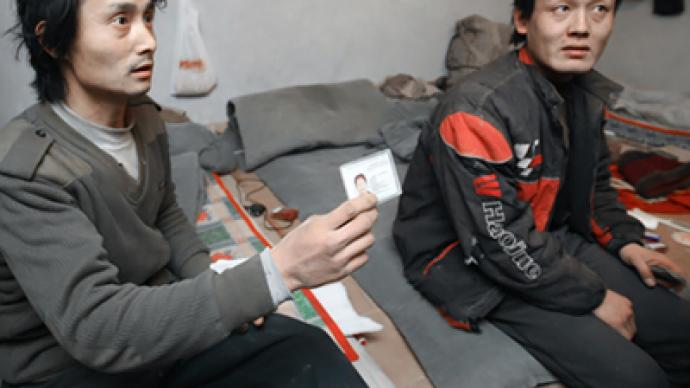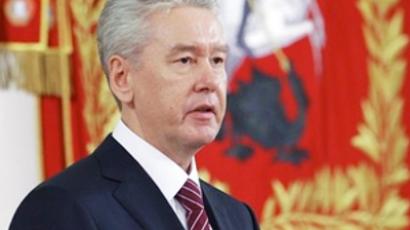Sobyanin plans to stop migrant flow to Moscow

New Moscow Mayor Sergey Sobyanin has demanded that a transparent policy on migrants be introduced and the unreasonable inflow of foreign workers to the Russian capital stopped.
Sworn in as the new city’s chief less than a month ago, Sobyanin is determined not to have his plans put on the back burner. He has ordered the Moscow department of Labor and Employment to publish on its website complete data on migrant workers as early as Saturday. The move is meant to bring transparency to the migration policy. “I have nothing against migrants. The city needs them,” the mayor assured. “I just want to get a clear idea on what kinds of specialists are needed and in what areas," Sobyanin said, writes Itar-Tass.One of the promises the mayor made before he took office was to reduce the unemployment rate among Muscovites, which currently accounts for over 50,000 people. Those are only the officially registered jobless: the real number could be a lot higher.According to the mayor, there is a direct link between the employment program and migration policy. The migrant flow “radically affects” the situation with jobs in the capital, Sobyanin stressed at a working meeting on Friday. Currently the logic that Moscow government follows when considering bringing in more migrants is not clear. In particular, the capital’s labor department came under fire from the mayor for asking the federal authorities to let them provide employment for 1,146 Chinese nationals. So far, the mayor pointed out, over 16,000 people from China have been welcomed to the city under the quota on foreign labor, though only a half of them with that purpose to actually work in Moscow.“I want to know who allowed you to submit such requests on behalf of the [Moscow] government without informing anyone on the matter,” Sobyanin wondered addressing the head of the body, Oleg Netrebsky.The department chief tried to parry the blow, saying that the Chinese have traditionally worked in Moscow restaurants, oriental medicine centers and in the trading sector. But Sobyanin remained adamant, having official documents ready to say what those migrants actually do. An accountant, a programmer, an agent, a storekeeper and a number of low-qualified workers have descended on the capital from the Celestial Empire. Now, Sobyanin said, the department wants Chinese managers and sales agents. And it is not one or two, but at least a hundred for each direction, the mayor noted.The Chinese who came under the mayor’s spotlight account only for a tiny part of all the migrants who come to Moscow. The majority of them come from former Soviet republics.According to Moscow Federal Migration Service (FMS) there are over a million legal migrants in the capital. “As for the citizens of other countries which arrive in the capital, the majority of them are from Ukraine, Moldova and Tajikistan,” Aleksey Dubinin, from the Moscow North’s department of FMS told earlier Interfax agency. Of course, not all of them are migrant workers, as many have family ties in Russia or decided to relocate for other reasons. In any case, there should be more order and logic in the country’s policy on the migration issue. According a poll published in October by Russian Public Opinion Research Center (VCIOM), tackling the problem with guest workers who want to become permanent residents is among the priority tasks that Muscovites want the new mayor to address. At least the first step in that direction has now been made.Sergey Sobyanin, 52, replaced Yury Luzhkov, who was mayor of Moscow for long 18 years before being dismissed by President Dmitry Medvedev “over a loss of confidence.”
Natalia Makarova, RT














